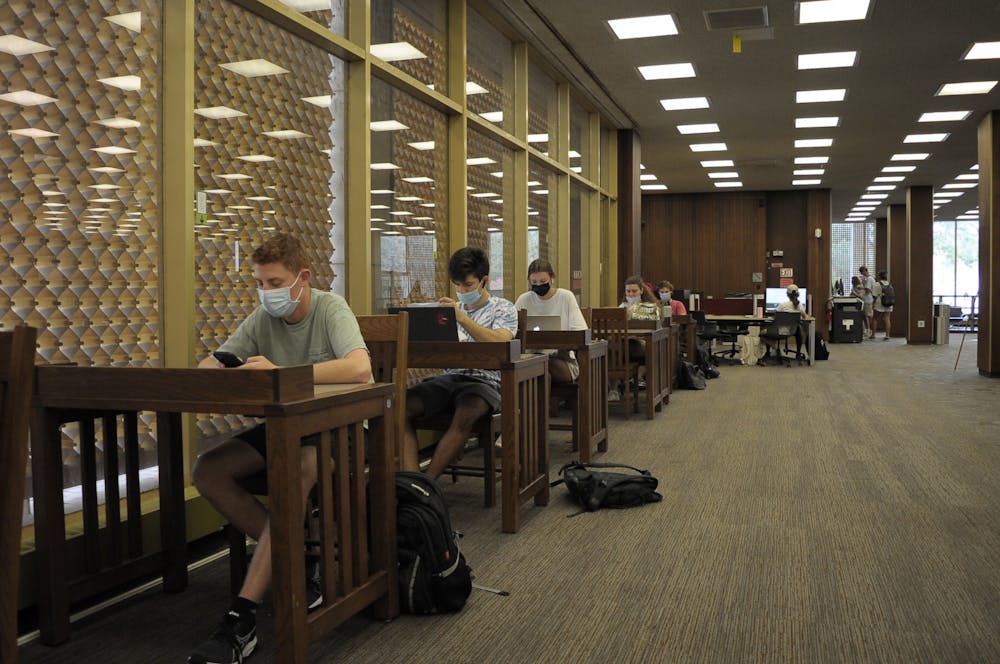The pandemic is not over, and everyone should be doing as much as they can to ensure it can finally end.
While the release of COVID-19 vaccines might have promised to usher in a return to normal life in the U.S., circumstances have since shifted.
Though the vaccination rate in the U.S. peaked at around 3 million shots per week in April, more recently that number has dropped to 613,682 shots per week, according to the CDC. At the moment, only 51.8% of the U.S. population is fully vaccinated against COVID-19, leaving almost half of our country susceptible to hospitalization from the virus.
South Carolina is lagging slightly behind the national numbers, with only 46.8% of the eligible population being fully vaccinated, and in Richland County, 46.6% of eligible citizens are fully vaccinated.
The statistics, the emergence of new variants and mutations (like the delta variant) and the rise in new cases are a recipe for disaster.
If we continue to allow variants to the virus to spread, the vaccines we currently have could become ineffective, according to the American Association for the Advancement of Science. If this happens, the world could find itself back to square one.
However, this future is preventable. Students here at USC can do their part by practicing safe habits, such as wearing a mask indoors and getting vaccinated.
With USC back to full in-person classes, things are a bit more crowded than they were last year. This makes it even more important to do as much as we can, so we can ensure we're keeping each other safe and continue to stay on campus.
The easiest way to do this is to get vaccinated.
If you or someone you know is hesitant about getting vaccinated, speak to a doctor or go over what institutions such as the CDC or the Mayo Clinic are saying to ease such fears.
In short, the vaccines have gone through a lot of testing and refinement to ensure they are safe for the general public. In fact, the FDA fully approved the Pfizer vaccine on Aug. 23.
Do your research when listening to theories or advice from people who don’t have a medical degree or experience. Misinformation can spread like wildfire, but the public can combat this by being informed and educated. Agencies like the CDC regularly update the public in regards to what scientists know about COVID-19 and help to stop the spread of false claims regarding vaccines.
Even if you are vaccinated, continue to wear masks when in public places, especially in classes or crowded areas such as Russell House. Even if everyone eligible to receive the vaccine does so, there are still those who are physically unable to receive it, such as those with pre-existing conditions or allergies.
Wearing a mask is a simple task that students should not have any problem following – it's something we've been doing for over a year now.
There are other ways to aid this mission as well, such as washing your hands and practicing social distancing. However, getting vaccinated and continuing to wear masks are the easiest and most effective tools the student body has to keep ourselves safe and to keep classes in-person.
Ignoring the problem and going back to normal habits is one of the worst things we can do, as South Carolina, and Richland County specifically, is seeing a rise in COVID-19 cases.
If we all do our part, hopefully we can return to normal sooner rather than later.

